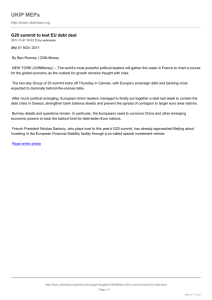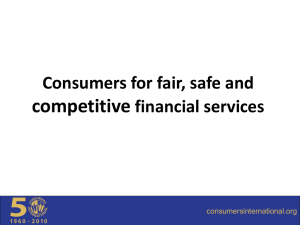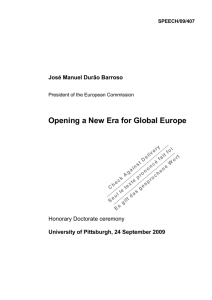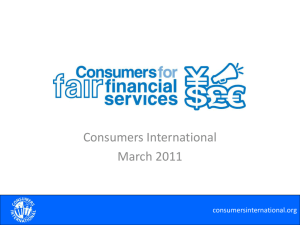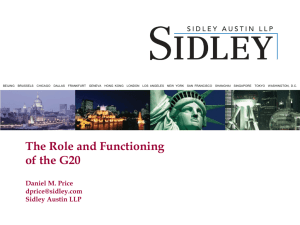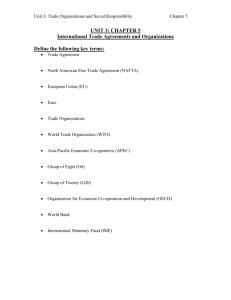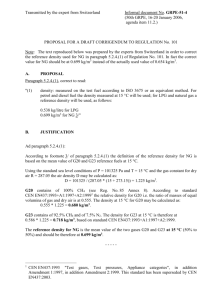Pittsburgh G20 Summit Recap Success of September’s G20 Summit in Pittsburgh
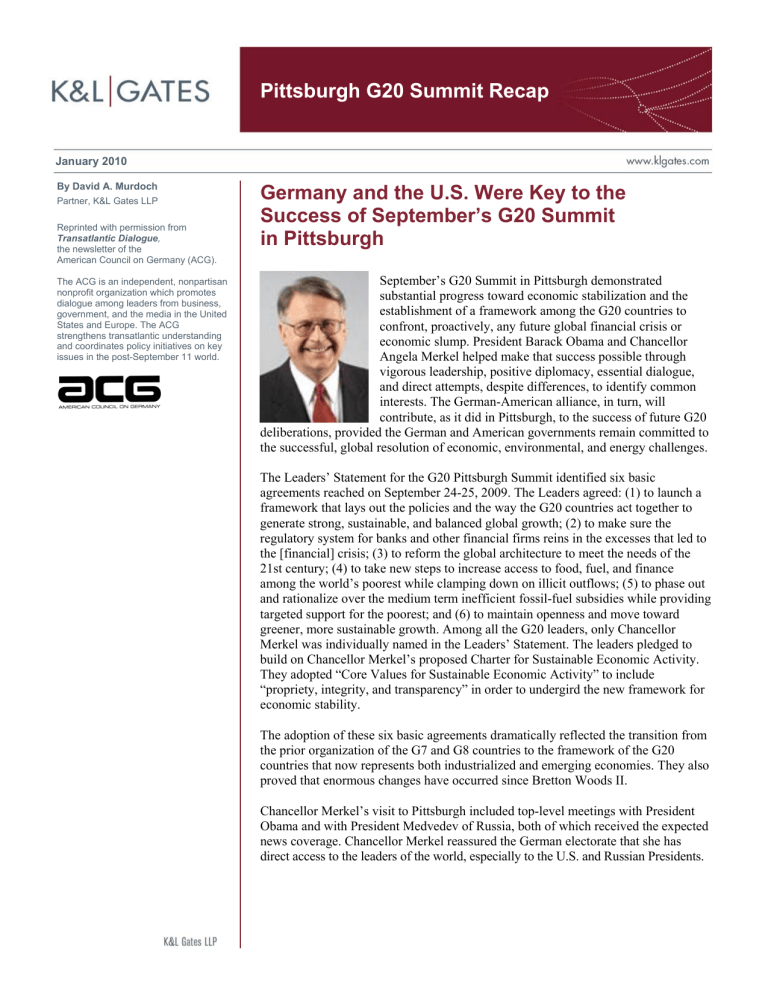
Pittsburgh G20 Summit Recap
January 2010
By David A. Murdoch
Partner, K&L Gates LLP
Reprinted with permission from
Transatlantic Dialogue , the newsletter of the
American Council on Germany (ACG).
The ACG is an independent, nonpartisan nonprofit organization which promotes dialogue among leaders from business, government, and the media in the United
States and Europe. The ACG strengthens transatlantic understanding and coordinates policy initiatives on key issues in the post-September 11 world.
Germany and the U.S. Were Key to the
Success of September’s G20 Summit in Pittsburgh
September’s G20 Summit in Pittsburgh demonstrated substantial progress toward economic stabilization and the establishment of a framework among the G20 countries to confront, proactively, any future global financial crisis or economic slump. President Barack Obama and Chancellor
Angela Merkel helped make that success possible through vigorous leadership, positive diplomacy, essential dialogue, and direct attempts, despite differences, to identify common interests. The German-American alliance, in turn, will contribute, as it did in Pittsburgh, to the success of future G20 deliberations, provided the German and American governments remain committed to the successful, global resolution of economic, environmental, and energy challenges.
The Leaders’ Statement for the G20 Pittsburgh Summit identified six basic agreements reached on September 24-25, 2009. The Leaders agreed: (1) to launch a framework that lays out the policies and the way the G20 countries act together to generate strong, sustainable, and balanced global growth; (2) to make sure the regulatory system for banks and other financial firms reins in the excesses that led to the [financial] crisis; (3) to reform the global architecture to meet the needs of the
21st century; (4) to take new steps to increase access to food, fuel, and finance among the world’s poorest while clamping down on illicit outflows; (5) to phase out and rationalize over the medium term inefficient fossil-fuel subsidies while providing targeted support for the poorest; and (6) to maintain openness and move toward greener, more sustainable growth. Among all the G20 leaders, only Chancellor
Merkel was individually named in the Leaders’ Statement. The leaders pledged to build on Chancellor Merkel’s proposed Charter for Sustainable Economic Activity.
They adopted “Core Values for Sustainable Economic Activity” to include
“propriety, integrity, and transparency” in order to undergird the new framework for economic stability.
The adoption of these six basic agreements dramatically reflected the transition from the prior organization of the G7 and G8 countries to the framework of the G20 countries that now represents both industrialized and emerging economies. They also proved that enormous changes have occurred since Bretton Woods II.
Chancellor Merkel’s visit to Pittsburgh included top-level meetings with President
Obama and with President Medvedev of Russia, both of which received the expected news coverage. Chancellor Merkel reassured the German electorate that she has direct access to the leaders of the world, especially to the U.S. and Russian Presidents.
Pittsburgh G20 Summit Recap
Her reelection on September 27 secured her continuing leadership in the G20 and her work on Sustainable
Economic Activity.
In 2010, President Obama’s policies and achievements will be subjected to review and comment by the
American electorate. The G20 Summits in Canada in
June and Korea in November may not be as important for President Obama as the G20 Summit in Pittsburgh was for Chancellor Merkel. But progress by the United
States and Germany between now and then will be as vital to the ultimate success of the G20 Summits in
2010 on energy and the environment as the G20
Summit meeting in Pittsburgh was for economic and financial stability. Indeed, discussions between the
United States and Germany on the global environment and alternative energy sources during the coming year could become the cornerstone for successful G20
Summits in 2010. Given many diplomatic successes between Germany and America over the past six decades, there is good reason for hope that this alliance can and will contribute even more to international success on global issues.
Once again, it is time to follow up with the hard work of German-American diplomacy, both public and private, that will enhance the prospects for G20
Summit successes in 2010 like the one we experienced in Pittsburgh in September 2009.
Chancellor Merkel’s speech to the United States
Congress on November 3, 2009, laid a solid foundation for that diplomacy to proceed positively and well.
David A. Murdoch is a Partner at the international law firm of K&L
Gates LLP, a former member of the Board of Directors of the American
Council on Germany, and Honorary Consul for the Federal Republic of
Germany in Pittsburgh. He greeted Chancellor Angela Merkel upon her arrival in Pittsburgh on September 24 for the G20 Summit meeting. Mr.
Murdoch has been the Director of the American Council on Germany’s
Pittsburgh Warburg Chapter since 1995.
Mr. Murdoch may be reached at +1.412.355.6472 or david.murdoch@klgates.com
Anchorage Austin Beijing Berlin Boston Charlotte Chicago Dallas Dubai Fort Worth Frankfurt Harrisburg Hong Kong London
Los Angeles Miami Moscow Newark New York Orange County Palo Alto Paris Pittsburgh Portland Raleigh Research Triangle Park
San Diego San Francisco Seattle Shanghai Singapore Spokane/Coeur d’Alene Taipei Tokyo Washington, D.C.
K&L Gates includes lawyers practicing out of 35 offices located in North America, Europe, Asia and the Middle East, and represents numerous
GLOBAL 500, FORTUNE 100, and FTSE 100 corporations, in addition to growth and middle market companies, entrepreneurs, capital market participants and public sector entities. For more information, visit www.klgates.com.
K&L Gates is comprised of multiple affiliated entities: a limited liability partnership with the full name K&L Gates LLP qualified in Delaware and maintaining offices throughout the United States, in Berlin and Frankfurt, Germany, in Beijing (K&L Gates LLP Beijing Representative Office), in
Dubai, U.A.E., in Shanghai (K&L Gates LLP Shanghai Representative Office), in Tokyo, and in Singapore; a limited liability partnership (also named
K&L Gates LLP) incorporated in England and maintaining offices in London and Paris; a Taiwan general partnership (K&L Gates) maintaining an office in Taipei; a Hong Kong general partnership (K&L Gates, Solicitors) maintaining an office in Hong Kong; and a Delaware limited liability company (K&L Gates Holdings, LLC) maintaining an office in Moscow. K&L Gates maintains appropriate registrations in the jurisdictions in which its offices are located. A list of the partners or members in each entity is available for inspection at any K&L Gates office.
This publication is for informational purposes and does not contain or convey legal advice. The information herein should not be used or relied upon in regard to any particular facts or circumstances without first consulting a lawyer.
January 2010
2
